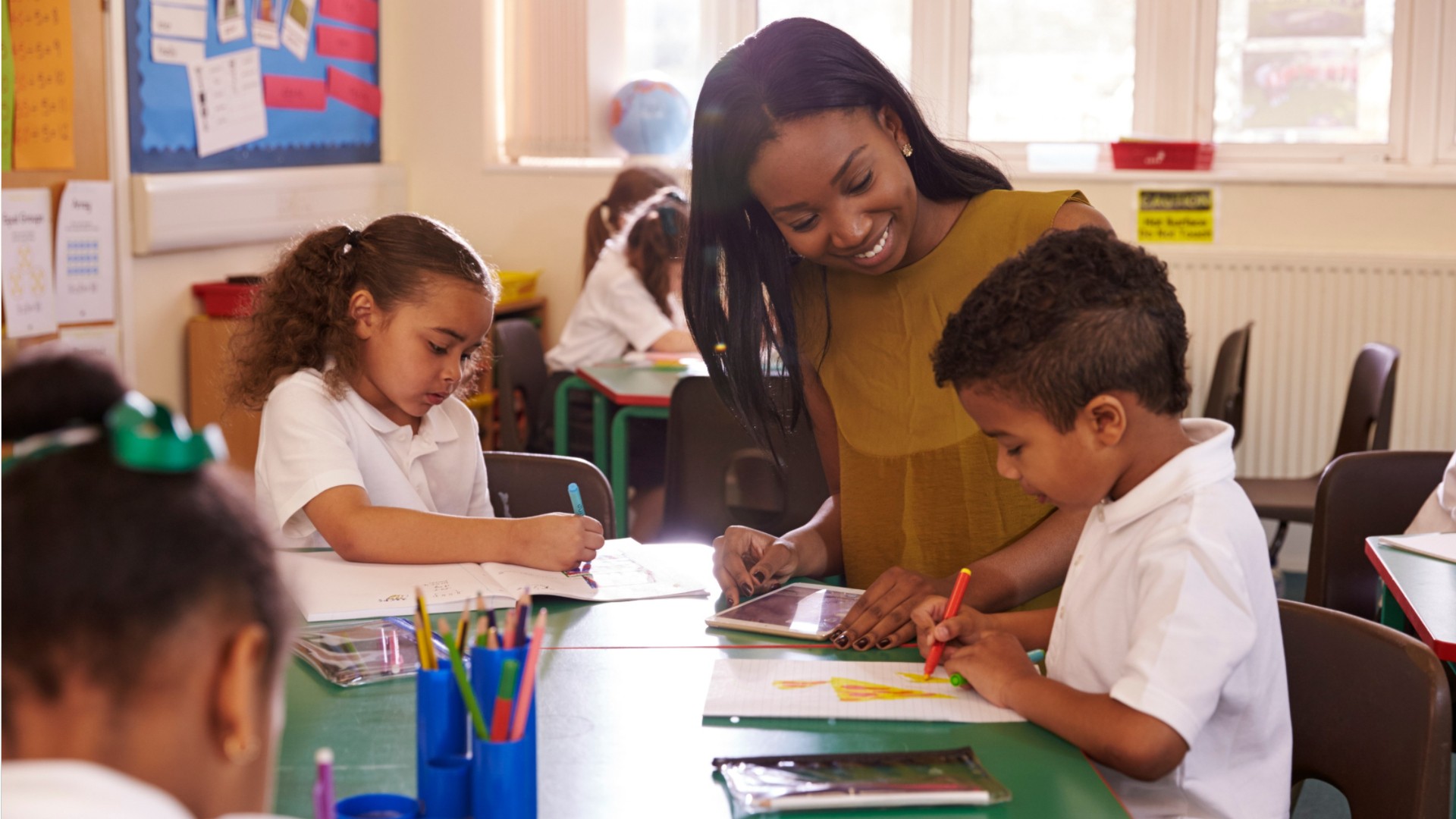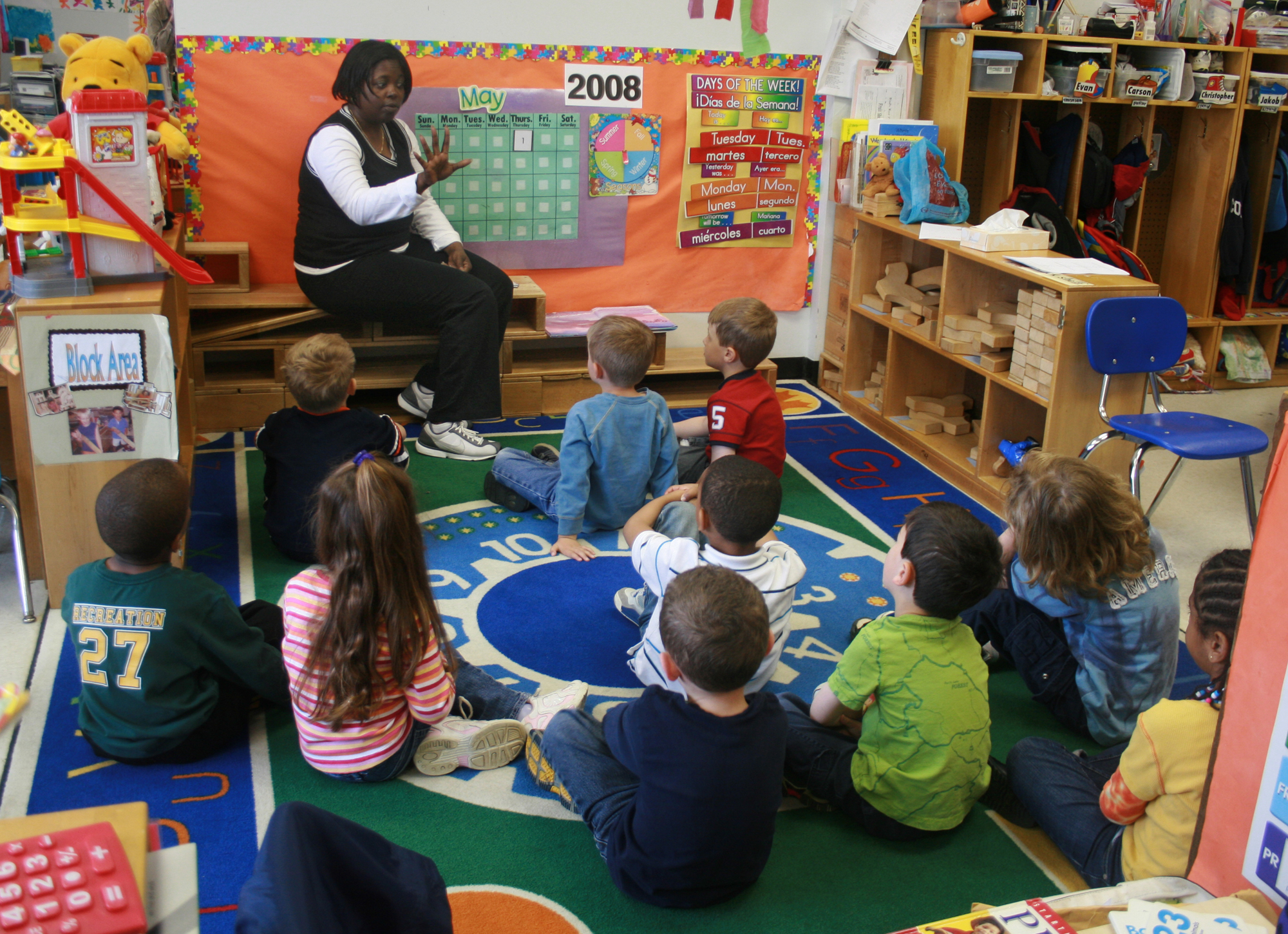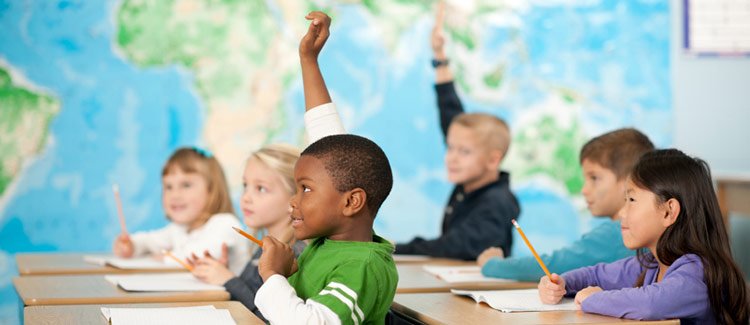How teachers influence of educators in Kindergarten learning outcomes
Wiki Article
Everything about Preschool: Understanding the Relevance of Early Youth Education And Learning Programs
Preschool works as a critical point in a child's early growth. It presents fundamental skills vital for future discovering and social communications. Via numerous activities, kids take part in structured play that advertises cognitive development. Recognizing the subtleties of different preschool programs can even more illuminate their significance. What certain advantages do these very early education and learning experiences offer, and exactly how do they shape a child's trajectory? The answers may be extra complicated than one might expect.
The Function of Kindergarten in Kid Development
Some might check out kindergarten simply as a changeover phase before formal schooling, it plays an important duty in child advancement. This fundamental phase cultivates important social, psychological, and cognitive skills that are essential for long-lasting learning. In kindergarten, children take part in organized play, which improves their capacity to coordinate, share, and fix disputes with peers. These interactions prepared for healthy and balanced partnerships and improved communication skills.Furthermore, preschool presents kids to fundamental ideas in proficiency and numeracy, triggering curiosity and a love for discovering. Educators assist trainees with tasks that advertise analytical and important reasoning, essential components of intellectual growth. The setting emphasizes regular and structure, helping youngsters establish self-control and freedom. By concentrating on all natural advancement, preschool assurances that children are not only ready academically but likewise socially and emotionally for the obstacles of future educational endeavors.
Key Benefits of Very Early Childhood Education
Early youth education uses numerous benefits that can substantially impact a child's development and future success. Research indicates that youngsters who take part in top quality early education and learning programs show boosted cognitive abilities, far better language development, and boosted social skills contrasted to their peers that do not go to such programs. These fundamental abilities are important as they establish the stage for scholastic achievement and long-lasting discovering.Very early education cultivates emotional development by giving children with chances for participating play and conflict resolution, assisting them create strength and empathy. In addition, these programs often help connect the space for kids from varied histories, guaranteeing fair access to discovering sources and experiences
Eventually, purchasing early youth education not only advantages individual youngsters but also contributes to stronger neighborhoods, as enlightened individuals are more probable to involve favorably in culture and the workforce.
Different Types of Kindergarten Programs
Various preschool programs provide to different educational philosophies and needs. Full-day options provide extended discovering time, while the Montessori strategy highlights freedom and hands-on experiences. Furthermore, play-based learning strategies foster creative thinking and social abilities, highlighting the variety in early childhood years education.Full-Day Preschool Options
Several parents and teachers acknowledge the growing relevance of full-day kindergarten choices in early youth education. Full-day programs normally give an even more complete knowing experience, enabling youngsters to take part in a variety of tasks throughout the day. These options frequently include a well balanced curriculum that incorporates academic, social, and emotional development. Some areas use conventional full-day preschool, while others may offer customized programs, such as twin language or thematic discovering settings. In addition, full-day preschool can accommodate functioning parents by lining up school hours with normal job schedules. Study recommends that pupils in full-day programs typically show enhanced academic performance and social abilities contrasted to their peers in half-day settings, making these options significantly popular in lots of areas.Montessori Method Introduction
Although the Montessori technique is simply one of lots of educational viewpoints, it has gained substantial attention for its one-of-a-kind focus on child-led understanding and exploration. Developed by Dr. Maria Montessori, this technique concentrates on promoting independence and self-directed task in children. Classrooms are commonly designed to encourage movement and hands-on interaction with products, allowing youngsters to find out at their own rate. Montessori instructors work as guides, helping with discovering through monitoring instead than straight guideline. This technique focuses on mixed-age class, promoting cooperation and peer learning. Additionally, the Montessori method highlights practical life abilities and sensory tasks, helping kids create a solid foundation in both academic and social competencies. Moms and dads frequently value the alternative growth that this technique supports in their children.Play-Based Understanding Methods
Play-based discovering strategies are essential to various preschool programs, highlighting the importance of play as an essential setting of finding out for children. These strategies motivate exploration, creativity, and social communication, allowing kids to take part in hands-on experiences that cultivate emotional and cognitive advancement. Different types of play, such as imaginative, positive, and physical play, are made use of to sustain discovering purposes across subjects like scientific research, literacy, and mathematics. Furthermore, play-based programs commonly include collective activities, promoting teamwork and communication abilities. Educators observe and guide kids during play, making sure that finding out end results are achieved while keeping a happy learning atmosphere. This approach not only boosts academic preparedness yet likewise grows a lifelong love for discovering, making it a crucial component of very early childhood years education and learning.The Importance of Play in Discovering
A significant body of research study underscores the vital duty of play in early childhood years education, highlighting its profound effect on knowing and growth. Play serves as an essential system through which young kids explore their setting, establish cognitive abilities, and boost their analytical abilities. Taking part in creative play allows children to try out various duties and situations, fostering creativity and crucial thinking.Additionally, play-based learning encourages youngsters to involve with materials and concepts in a hands-on way, making abstract ideas more concrete and easy to understand. This experiential understanding approach not only captures children's passion yet likewise advertises inherent motivation, fundamental for lifelong knowing.
With play, kids likewise refine their motor abilities and spatial understanding, laying the look at these guys groundwork for more intricate academic jobs. Essentially, focusing on play in early childhood years education programs is crucial for supporting holistic development, furnishing children with the foundational skills necessary for their future academic trips.
Social Abilities Development in Kindergarten
Building on the foundation developed via play, preschool functions as an essential atmosphere for social abilities growth. Throughout this formative stage, children engage in organized tasks that urge communication with peers. With team jobs, participating video games, and shared jobs, they find out vital abilities such as problem, interaction, and compassion resolution.Teachers assist in these interactions, guiding children in recognizing read the full info here social signs and fostering positive relationships. As children navigate numerous social situations, they create a feeling of belonging and learn to value varied perspectives.
Furthermore, preschool provides possibilities for children to exercise turn-taking, sharing, and negotiation, which are vital for constructing friendships. These experiences not only enhance social capability but additionally contribute to emotional intelligence. Consequently, the social skills gotten in kindergarten prepared for effective communications in later academic settings and throughout life. The relevance of social abilities growth in preschool can not be overemphasized.
Parental Participation in Very Early Education And Learning

When moms and dads demonstrate an interest in their child's education and learning, it cultivates a positive perspective in the direction of discovering. Children are extra likely to develop a sense of belonging and inspiration to do well when they feel sustained. Additionally, parental involvement can improve a kid's emotional health, causing greater strength in dealing with college challenges. Promoting a collaborative environment in between home and institution is necessary for maximizing early academic experiences and outcomes.
Preparing for the Transition to Grade School
As youngsters come close to the end of their kindergarten journey, planning for the change to primary school ends up being increasingly important. This shift needs mindful planning and support from both parents and educators. Acquainting kids with the new environment, regimens, and expectations of primary school can relieve their anxiousness and advertise self-confidence.
Institutions typically offer alignment sessions that present youngsters to their future classrooms and educators, fostering a feeling of belonging. Additionally, moms and dads can involve in conversations regarding the changes in advance, stressing the amazing possibilities for learning and social communication.
Motivating independence in daily jobs, such as clothing and following a schedule, can also be helpful. Exercising essential abilities, such as letter you could try this out recognition and standard mathematics, prepares kids academically for initial quality.
Eventually, a joint effort amongst parents, instructors, and the neighborhood ensures a smoother shift, laying a solid foundation for a successful academic journey.
Regularly Asked Concerns
What Qualifications Should Kindergarten Educators Have?
Preschool educators need to possess a bachelor's level in very early childhood education or a relevant area, together with state certification. Extra qualifications might include specialized training in youngster advancement, class monitoring, and effective training methodologies.How Do I Pick the Right Preschool Program?
To select the ideal preschool program, one should think about aspects like curriculum, teaching techniques, class size, educator qualifications, and moms and dad testimonials. Seeing centers and observing interactions can additionally supply beneficial understandings right into the program's atmosphere.What Should My Youngster Learn in Kindergarten?
In kindergarten, a youngster needs to discover fundamental abilities such as basic analysis and writing, counting, social communications, analytic, and electric motor skills. These proficiencies promote cognitive advancement and prepare them for future instructional challenges.Are There Age Requirements for Preschool Registration?
A lot of states need kids to be five years old by a specific day, commonly September 1st, for preschool registration. Nevertheless, specific age demands can vary, so examining local college area regulations is essential.
Just How Can I Assistance My Child's Knowing in your home?
To sustain a youngster's understanding at home, parents can establish a regular, give interesting educational materials, encourage reading, take part in hands-on tasks, and foster open interaction to support inquisitiveness and crucial thinking skills.Preschool offers as a vital stage in a child's early development. Some might view kindergarten simply as a changeover phase prior to formal schooling, it plays an important duty in youngster advancement. In enhancement, kindergarten presents kids to fundamental ideas in literacy and numeracy, sparking interest and a love for discovering. Play-based discovering approaches are indispensable to countless preschool programs, stressing the relevance of play as a basic setting of learning for young children. In preschool, a kid should find out fundamental abilities such as basic analysis and writing, counting, social interactions, problem-solving, and motor skills.
Report this wiki page